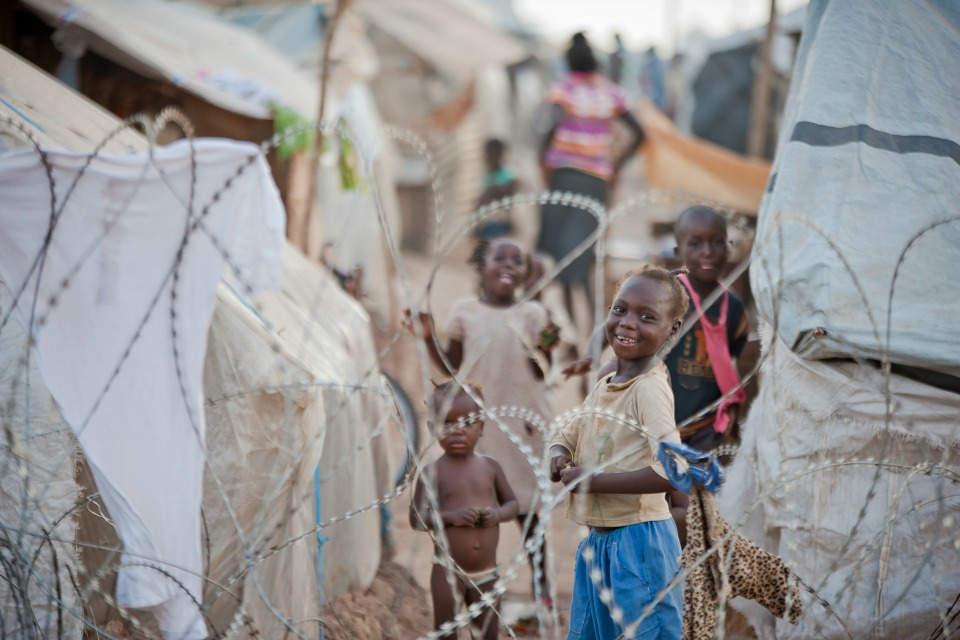"This Council must do its utmost to protect children and to give a strong voice to those most vulnerable."
Statement by Ambassador Mark Lyall Grant of the UK Mission to the UN at the Security Council Open Debate on Children and Armed Conflict

Thank you Mr President for convening today’s important debate on the child victims of non-state armed groups. I thank the Secretary-General, his Special Representative Leila Zerrougui and all of the briefers for their thought-provoking and bold statements. I welcome the fact that this Council has heard from a wide range of voices today to help inform our discussion, including a former child soldier and the NGO community.
Mr President,
Since we last met to discuss this issue, a number of high profile and abhorrent abuses have been committed against children by non-state armed groups. In Nigeria, Boko Haram sent three young girls to their deaths in suicide bombings. In Syria, ISIL filmed children taking part in arbitrary executions of prisoners. And in Pakistan, 132 children were brutally murdered in their school by the Taliban last December. That is just three of many such recent examples.
It is these shocking acts of violence that illustrate the scale of the challenge that faces us, and shows that we must redouble our efforts to prevent them happening in the future. Today I shall focus my statement on three ways of doing so; by ensuring accountability, by fostering reintegration and by promoting action plans and inclusive peace processes.
Mr President,
The International Criminal Court plays an invaluable role in the fight against impunity. The conviction and sentencing of Thomas Lubanga by the International Criminal Court for recruiting and using child soldiers in conflict sent a clear message that perpetrators will be held accountable, even if many years have elapsed since they committed their crimes.
Action through the ICC has not always been possible. Despite reports of the deaths of more than 11,000 children in Syria, the Council failed to agree a resolution last year referring the situation in Syria to the ICC. But this did not deter us from other efforts to document human rights violations by states and abuses by non-state actors in readiness for a time when perpetrators can be held to account.
The Security Council, the Working Group, the Special Representative and civil society must therefore use all of the tools available to ensure accountability for violations and abuses committed against children. The expansion of Resolution 1612’s listing criteria to include abductions is another step that would enhance the international community’s ability to hold perpetrators to account. And more action plans with non-state actors will give the UN valuable metrics to measure whether progress is being made.
Mr President,
We welcome the release of up to 250 child soldiers this week by the Cobra Faction in South Sudan. We commend the efforts of UNICEF to secure their freedom and call for the release of the remaining 3,000 child soldiers in the Cobra Faction over the coming days.
But we must recognise that the release is only the first step; the trauma for these children is far from over, as Mr Nzita told us this morning. Children formerly associated with armed groups are often marginalized by their communities making reintegration more difficult. Moreover, without successful rehabilitation and reintegration, children are left vulnerable to re-recruitment.
In this context, we must also ensure that children associated with armed groups are not arbitrarily detained and have access to rehabilitation and long-term stability following their release. I emphasise the importance of the Paris Principles to treat children as victims not perpetrators.
Mr President,
While the picture may often seem bleak, many non-state actors have shown some willingness and commitment to working with the UN to end violations and abuses committed against children by entering into action plans and committing to the protection of children in peace processes. More than half of the action plans signed by the UN, and half of those that have been successfully implemented, have been with non-state actors. We urge all listed non-state armed groups to agree concrete, time-bound action plans to end violations committed against children and to secure their release.
And as seen in the Philippines, Cote d’Ivoire and Liberia, non-state actors’ involvement in peace processes can also provide momentum to end the recruitment and use of child soldiers. We support the integration of child protection provisions, including the release and reintegration of children, into all peace and ceasefire agreements.
Mr President,
There are clear steps for non-state actors and the international community to take to stop the exploitation of children in armed conflict. But in doing so, we must not lose sight of the role that states themselves play in enabling, or even supporting, the growth of violent non-state actors. The breakdown of good governance, the abuse of the rule of law and the denial of basic security allow these groups to flourish, leaving some 15 million children living in countries embroiled in major conflicts. Whether in Syria, Yemen or in the east of Ukraine, this Council must do its utmost to end the violence, to protect children and to give a strong voice to those most vulnerable.
I thank you.